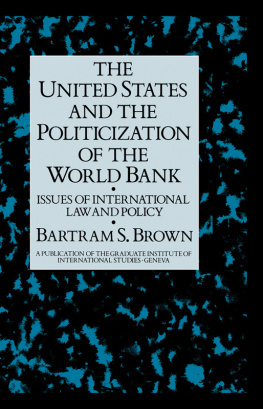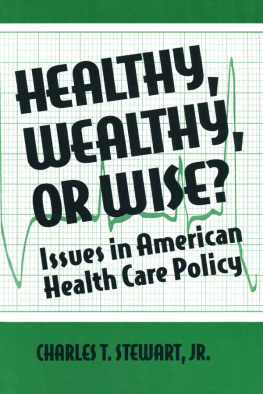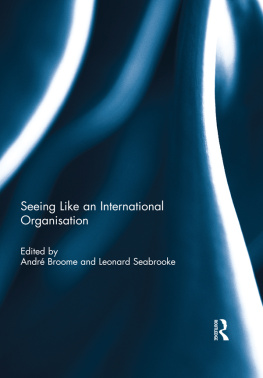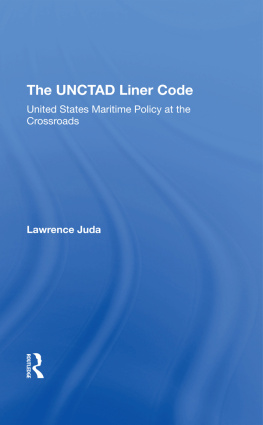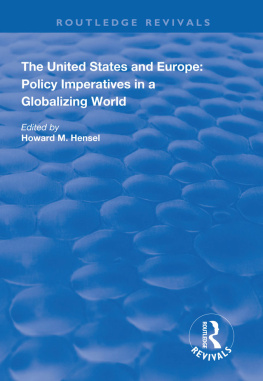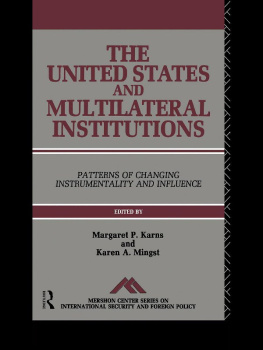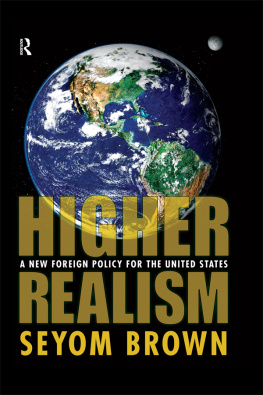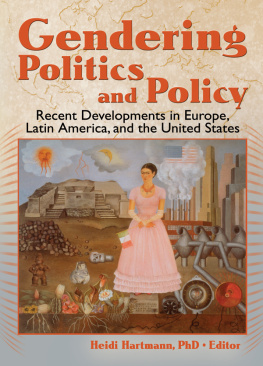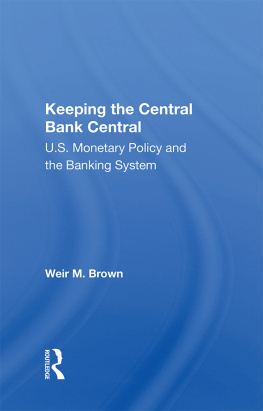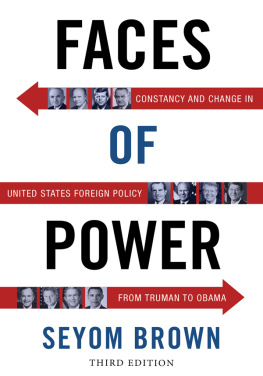THE UNITED STATES AND THE POLITICIZATION OF THE WORLD BANKA PUBLICATION OF THE GRADUATE INSTITUTE OF INTERNATIONAL STUDIES, GENEVA
THE UNITED STATES AND THE POLITICIZATION OF THE WORLD BANK
Issues of international law and policy
Bartram S. Brown
First published in 1992 by
Kegan Paul International
This edition first published in 2011 by
Routledge
2 Park Square, Milton Park, Abingdon, Oxon, 0X14 4RN
Simultaneously published in the USA and Canada
by Routledge
711 Third Avenue, New York, NY 10017
Routledge is an imprint of the Taylor & Francis Group, an informa business
The Graduate Institute of International Studies 1992
All rights reserved. No part of this book may be reprinted or reproduced or utilised in any form or by any electronic, mechanical, or other means, now known or hereafter invented, including photocopying and recording, or in any information storage or retrieval system, without permission in writing from the publishers.
British Library Cataloguing in Publication Data
A catalogue record for this book is available from the British Library
ISBN 10: 0-7103-0424-2 (hbk)
ISBN 13: 978-0-7103-0424-7 (hbk)
Publishers Note
The publisher has gone to great lengths to ensure the quality of this reprint but points out that some imperfections in the original copies may be apparent. The publisher has made every effort to contact original copyright holders and would welcome correspondence from those they have been unable to trace.
To My Parents,
Russell W. Brown and
Susie H. Brown
Acronyms and Other Abbreviated Forms Used
ADB | Asian Development Bank |
AfDB | African Development Bank |
AfDF | African Development Fund |
Bank | International Bank for Reconstruction and Development |
Council | National Advisory Council on International Monetary and Financial Policies |
ECOSOC | Economic and Social Council |
EDs | Executive Directors |
ESCOR | Economic and Social Council Official Records |
GATT | General Agreement on Tariffs and Trade |
GAOR | General Assembly Official Records |
IBRD | International Bank for Reconstruction and Development |
ICJ | International Court of Justice |
IDA | International Development Association |
IDB | Inter-American Development Bank |
IFIs | International Financial Institutions |
IGO | Intergovernmental Organization |
ILO | International Labour Organization |
IMF | International Monetary Fund |
MDBs | Multilateral Development Banks |
ODA | Official Development Assistance |
UN | United Nations |
UNCTAD | United Nations Conference on Trade and Development |
UNESCO | United Nations Economic Social and Cultural Organization |
USC | United States Code |
UNGA | United Nations General Assembly |
UNSC | United Nations Security Council |
US | United States |
Acknowledgements
I wish to express my thanks to the faculty members at the Graduate Institute of International Studies in Geneva, Switzerland who helped me in the preparation of the doctoral thesis which was eventually transformed into this book. These include the members of my thesis committee Stuart Robinson, Huu- Tru Nguyen, and the late Michel Virally as well as Lucius Caflisch who also provided support and encouragement. Special thanks go to Georges Abi-Saab, my thesis director, for his advice and guidance on this and other matters.
I am most grateful to the College of William and Mary and my colleagues there who provided important support for the preparation and publication of the final manuscript.
Many other people helped in the realization of this book, either through their comments, criticisms and suggestions or through other types of support provided to me during its preparation. It would be impossible for me to mention them all by name here, but I would nonetheless like to offer them this general expression of my thanks. As much as others may have contributed to this book, I alone am responsible for any shortcomings.
Bartram S. Brown
Williamsburg, Virginia
June 1991
Introduction
In recent years there has been a great deal of controversy and polemic concerning what is often referred to as the politicization of international organizations. The United States government invoked politicization as one of the justifications for its temporary withdrawal from the International Labor Organization from 1977 to 1980.1 A similar logic contributed to the decision of the US to withdraw from the United Nations Economic Scientific and Cultural Organization (UNESCO) at the end of 1984.2
It would be quite unrealistic to expect international organizations such as these to be totally non-political. Their budgetary resources as well as the fact that they owe their existence to the desire of states to cooperate, ensure that there must be some political side to their activities. What basis is there then for objecting to their politicization? This book is an investigation of the legal and practical implications of a certain type of politicization in the context of two of the institutions which comprise the World Bank Group, i.e., the International Bank for Reconstruction and Development (IBRD) and its soft loan affiliate the International Development Association (IDA).3 It focuses upon the use by the United States of its voting power in these organizations in order to serve political purposes unilaterally determined by the US Congress.
This book is not so much about what the World Bank does, but rather is about the internal constitutional structure of the World Bank, the relations between its members, and the political consensus which is the basis for the cooperation of states within that organization. In particular, it examines the role of international law in structuring this cooperation. Before focusing upon these issues it is important to consider the role of international economic organizations in the global economic order.
A. International Organizations and the World Economic Order
The development of the present system of multilateral economic institutions after World War II may ultimately prove to be one of the most significant international political developments of the 20th century. The period preceding that war had been characterized by protectionist high tariffs, exchange rate manipulations and other beggar thy neighbor economic policies. During that time the pursuit of economic policies reflecting a narrowly nationalistic perspective had led to a choking off of international trade and contributed to global economic stagnation. Remembering the international economic chaos which had preceded the war, the victorious Allied Powers, under American leadership, decided to construct a postwar system of international economic organizations which would structure international economic relations along more positive and cooperative lines. Their proposed system has sometimes been likened to a three-legged stool, each of whose legs was to correspond to a separate specialized agency affiliated with the United Nations (UN).

